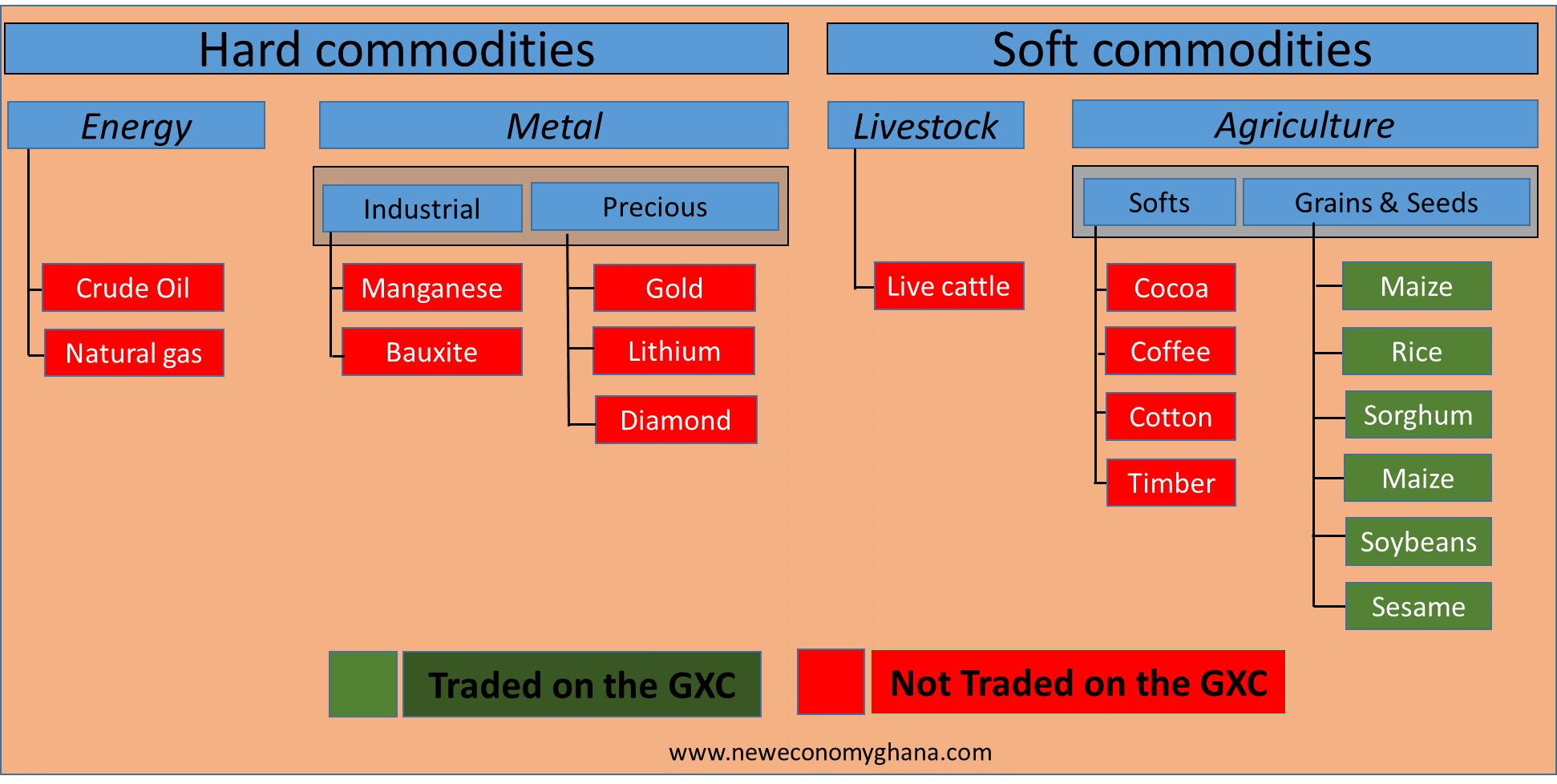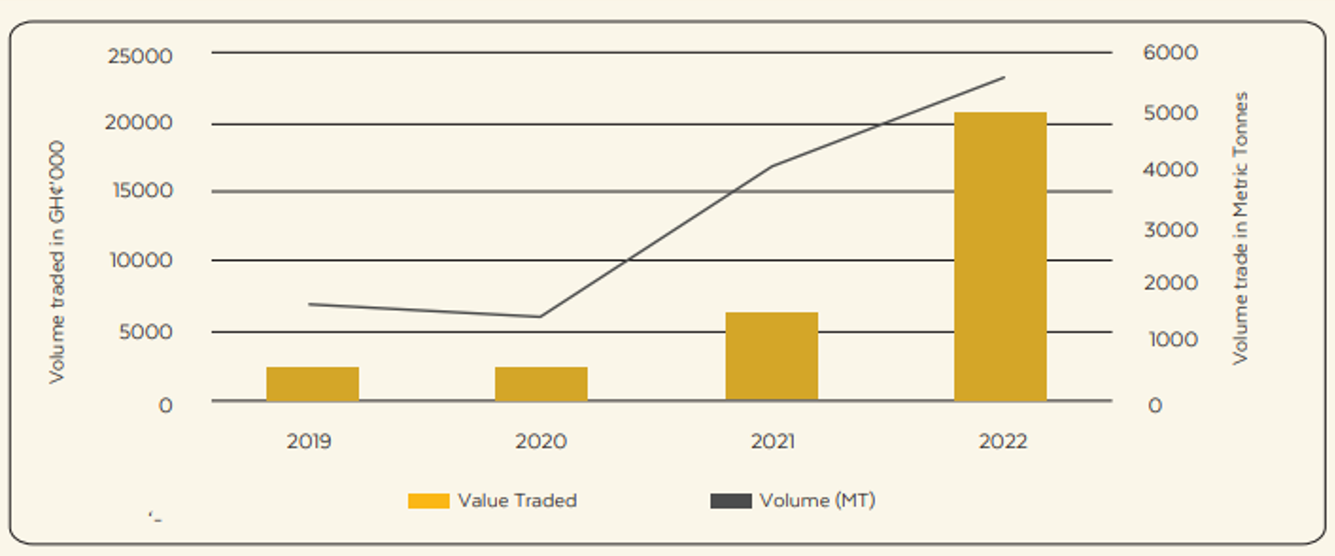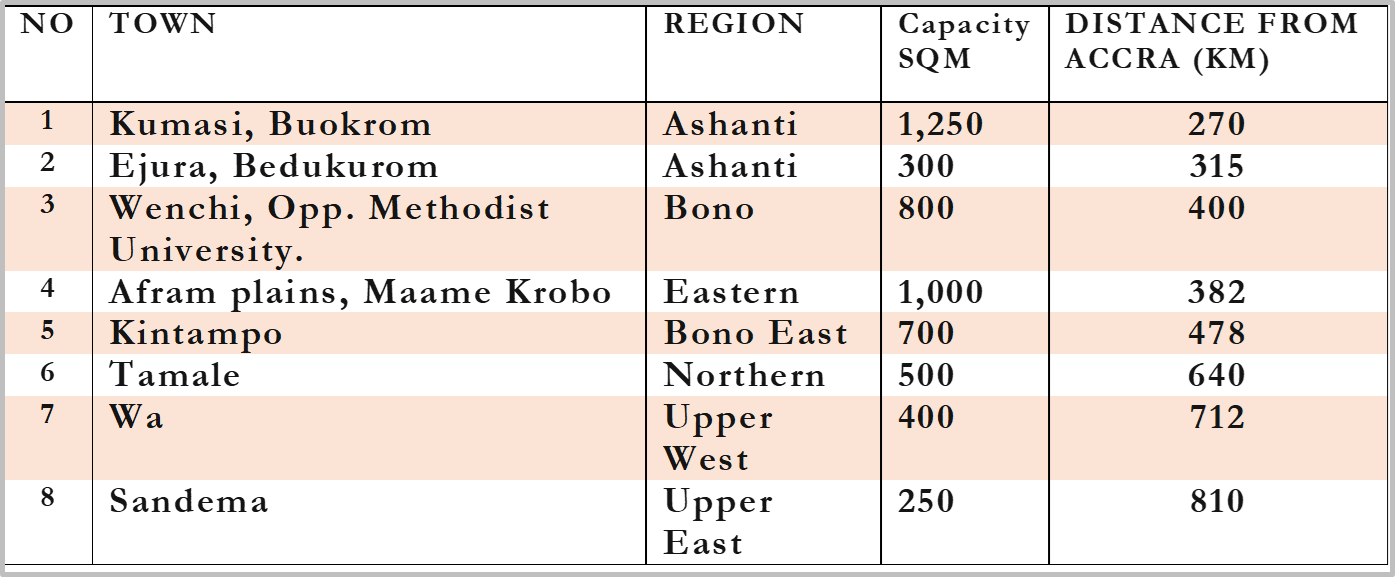Ghana Commodity Exchange (GCX): Domestic mission, regional ambitions
Andrew Yaw, Minneapolis MN, USA
April 22, 2024
T he Ghana Commodity Exchange (GCX) is a public entity, with the state of Ghana as the only shareholder. The exchange offers a trading platform for the purchase and sale of commodity spot and futures contracts. The exchange says it is committed to providing liquidy to market participants, increasing access to finance, and to establishing a fair and transparent price discovery mechanism for agricultural commodities. It also aspires to become a regional exchange in West Africa.
The GCX launched the first spot contracts for maize on November 6th, 2018. Since then, it has developed an electronic trading platform which connects buyers and sellers. With a network of modern warehouses and depots across the country, the exchange provides secure storage, product drying and grading, and also standardized re-packaging. In another landmark initiative, the exchange developped a partnership with banks, who provide agricultural financing by using the GCX’s electronic warehouse receipt system, called the ‟e-WRS”, as collateral.
Legacy of Informality
In Ghana, informal trading custom continues to dominate commodities market transactions. In these markets, the trading of grains take place during traditional weekly markets in thousands of towns and villages all over Ghana. In the absence of formal rules and regulations or frameworks for contracts, seller and buyers rely on traditional customs where agreements on purchase and sale prices end after a long bargaining processes. An asymmetry of information prevail in these commercial transactions. This means that producers and buyers and buyers cannot instantly match their respective needs. Other uncertainties include the seasonality of crops, the vagaries of the weather and the poor state of roads. Across Ghana, trucks must roam the country in search of producers, then travel to urban cities to reach buyers. Often, after many days on dirt roads, they reach the markets and villages when post-harvest losses and pests have decimated the commodities.
The idea, therefore, for the GCX is to guarantee supply by stocking grains in warehouses, standardizing measurements and ensuring health and safety standards. When these elements are in place, the Exchange then guarantees a standard pricing based on demand and supply, with equal access to market information for buyers and sellers. At this point, the GCX trades dried grains and specifically maize, sorghum, and rice. It also offers contracts on sesame seeds, soya, and cashew.
Domestic and regional markets
Modern commodities exchange offer agricultural products but also raw materials, metals, energy resources, and even financial instruments. Ghana is the first producer of gold in Africa and the second producer of cocoa in the world. The country also produces bauxite, manganese, diamonds, iron ore, oil and gas. But these mineral commodities are not traded on the exchange. Instead, the country continues to export them a raw natural resources with little value addition or transformation.
Ghanaian institutions and policy makers are beginning to acknowledge this economic paradox. The Ghana Statistical Service argues that ‟export dependency on gold, crude oil, and cocoa, which collectively accounts for three-quarters of the nation's total exports”1 increases its ‟vulnerability to external shocks”.
On the African continent, Ghana is not alone in this situation. But prominent commodities exchanges in Sub-Africa are beginning to trade commodities they produce on their soil. The Nigeria Commodities Exchange, for example offers the possibilities to invest in cocoa, coffee and cotton even though a significant portion of the national production is also exported2. In South Africa, the continent’s second producer of gold after Ghana, the Johannesburg Stock Exchange (JSE) offers several ways to invest in gold, including gold futures and options contracts, and also through the JSE Gold index3. The Ethiopia Commodity Exchange trades coffee (in addition to other commodities), in a country that is Africa's largest and the world's fifth largest coffee producer4.
Traded and Non-Traded commodities on the GCX

Source: USDA, Data visualization www.neweconomyghana.com
Operations
Trade value on the GCX was US$1.7 million (GH₵20.7 million) in 2022, representing an increase from US$ 524,524 (GH₵6.3 million) for the preceding year5. Five years after launch, the GCX has facilitated the trade of approximately 50,000 metric tons (1,000,000 bags) of maize, rice, soya, and cashew nut, valued at over US$18.1 million (GH₵280,000,000). At the end of 2023, the Exchange estimates that the year-to-date performance of its proprietary market index finished the year with a 7.14% increase.
GCX Trade

Source: Ghana SEC
Authorities says that the establishment of a Commodity Aggregation Development Fund (CADeF) has contributed to this growth6. This state-owned fund provides funds to buyers ‟known as commodity aggregators”, who travel around the country to purchase crops from smallholders. The GCX collects the commodities from buyers and stores them in eight warehouses (or delivery centers) around the country.
Warehouses of the GCX

Source: GCX
Another institution that aim to boost the market is the Entrepreneurship Development Fund set up by the GCX. This fund provides short term operational funding to commodity aggregators with additional support of the Ghana Enterprises Agency and of two privately-operated funds (Venture Capital Trust Fund and a Settlement Guarantee Fund). The later guarantee the payment of proceeds of sale to depositors on the GCX platform in the event of a default in settlement.
Regional ambitions
Ghana has a strategic geographical location in the Economic Communities of West African States (ECOWAS). This economic union has a market of over 400 million consumers. Ghana is well connected to its neighbours through transport networks, telecommunication infrastructure and cross-border trade. By road, Ghana is 464 km from Lagos, Nigeria, the largest economy in West Africa and 524 km from Abidjan (Cote d'Ivoire). Ghana has efficient airports and two important sea ports that serve ECOWAS eastern and western states.
This geographical position is a solid argument for the regional ambitions of the GCX. Outside of the ECOWAS region, the GCX has a potential to scale up through the African Continental Free Trade Agreement (AfCFTA).
Related Articles
BIBLIOGRAPHY
1❩ GSS (2023): 2023 Mid-Year Trade Report https://statsghana.gov.gh/Ghana_Mid-Year_2023_Trade_Report_21-11-2023_GS.pdf
2❩ Nigeria Stock Exchange (2024): Agricultural Commodities https://ncx.com.ng/our-commodities/agricultural-commodities/
3❩ Johannesburg Stock Exchange (): Commodities Derivatives Market https://www.jse.co.za/trade/derivitive-market/commodity-derivatives-market
4❩ Ethiopia Commodities Exchange (2024):
https://www.ecx.com.et/Pages/Coffee.aspx#CO
See also gcrmag.com (2011): An exchange for the better: Coffee on the Ethiopia Commodities Exchange (ECX) - https://www.gcrmag.com/an-exchange-for-the-better-coffee-on-the-ethiopia-commodities-exchange-ecx/
5❩ Bank of Ghana (2022): Financial stability review (2022)
6❩ Ghana Security and Exchange Commission (2022): Annual Report 2022 - https://sec.gov.gh/wp-content/uploads/Annual-Reports/2022_Annual_Report.pdf
